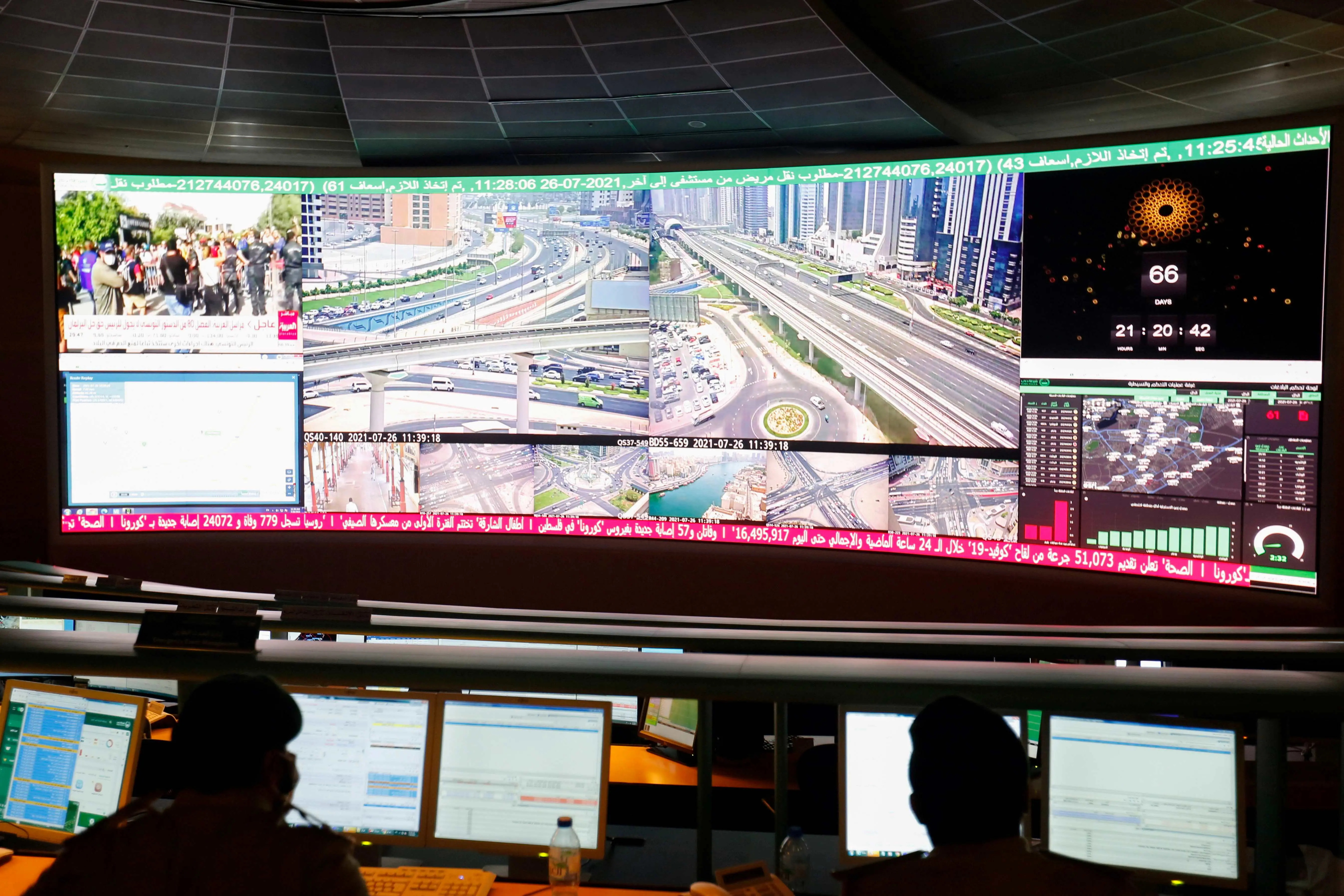UAE: Mass Surveillance Threatens Rights, COP28 Outcome. Participants attending the 28th annual United Nations Climate Change Conference (COP28), hosted by the United Arab Emirates (UAE) in Dubai, will be under extensive surveillance by Emirati authorities, violating human rights and threatening the conference’s success, Human Rights Watch said today.
Government representatives, civil society groups, and climate activists from all over the world are arriving in Dubai for COP28, held from November 30 to December 12, 2023. From the moment COP28 participants land in Dubai, they will be exposed to intrusive government surveillance. Authorities will capture the face and iris scans of those who participate in an optional program at Dubai International Airport known as “smart gates.” Whether or not they use this program, an expansive network of surveillance cameras throughout Dubai is able to identify all visitors based on data taken at customs as they travel throughout the city.
“The Emirati government should allow COP28 delegates to do their important work on the climate crisis without needing to worry about pervasive surveillance and the targeting of critical voices,” said Zach Campbell, senior surveillance researcher at Human Rights Watch. “Negotiations aiming to deliver the ambitious outcome the world urgently needs to address climate change are unlikely to succeed if delegates can’t communicate without fear.”
UAE: Mass Surveillance Threatens Rights, COP28 Outcome
The government also carries out extensive communications surveillance. Participants may be subject to government monitoring of their online posts and comments, interception of their text messages, and scanning of their network traffic. Given the UAE government’s severe punishment of dissent, this surveillance poses a risk to COP28 participants, especially those criticizing the authorities.
UAE authorities maintain a zero-tolerance policy toward criticism of the government and enforce that policy with an arsenal of invasive surveillance tools, including, in the worst cases, by directly monitoring messages, emails, and mobile devices in the UAE and beyond its borders. This has produced a chilling effect on public discourse, including extensive self-censorship, to the point where there is no independent civil society left in the country.
In March, conference organizers of an international climate and health summit in the UAE warned participants not to criticize the government or engage in protest while in the country.
United Nations Climate Change Executive Secretary Simon Stiell said in August, “there will be space available for climate activists to assemble peacefully and make their voices heard” at COP28. But the mass surveillance and repression make it unclear how this can happen, Human Rights Watch said.
The UAE has a long history of shuttering space for politics, public discourse, and activism. Over a decade ago Emirati authorities threatened to ban the use of Blackberries, then one of the few consumer mobile devices with encrypted email and messaging, until they were able to unroll what multiple security researchers described as a “back door,” allowing the government to gain entry into the devices, according to security researchers. In 2016, according to US court documents published by the New York Times, Emirati authorities hired former National Security Agency (NSA) hackers to break into dissidents’ devices.
Read more at HRW.ORG
Image: © 2021 REUTERS/Rula Rouhana


Leave a Reply